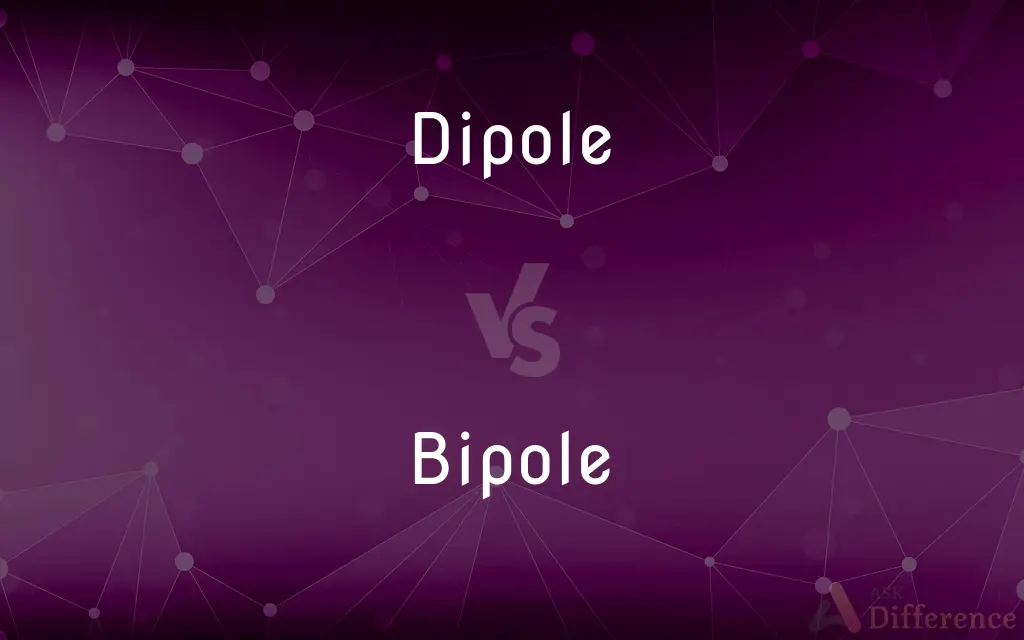Dipole vs. Bipole — What's the Difference?

Difference Between Dipole and Bipole
ADVERTISEMENT
Compare with Definitions
Dipole
In electromagnetism, there are two kinds of dipoles: An electric dipole deals with the separation of the positive and negative charges found in any electromagnetic system. A simple example of this system is a pair of electric charges of equal magnitude but opposite sign separated by some typically small distance.
Bipole
(physics) A region of magnetic flux having two distinct poles
Dipole
(Physics) A pair of separated electric charges or magnetic poles, of equal magnitude but of opposite sign or polarity.
Bipole
An electrical power transmission line having two direct-current conductors in opposite polarity.
Dipole
(Chemistry) A molecule having two such charges or poles.
ADVERTISEMENT
Dipole
(Electronics) An antenna, usually fed from the center, consisting of two equal rods extending outward in a straight line.
Dipole
(physics) Any object (such as a magnet, polar molecule or antenna) that is oppositely charged at two points (or poles).
Dipole
(chemistry) Any molecule or radical that has delocalised positive and negative charges.
Dipole
(radio) A dipole antenna.
Dipole
A pair of equal and opposite electric charges or magnetic poles separated by a small distance
Dipole
An aerial half a wavelength long consisting of two rods connected to a transmission line at the center
Share Your Discovery

Previous Comparison
Vitriolic vs. Diatribe
Next Comparison
Edge vs. Vertex















































